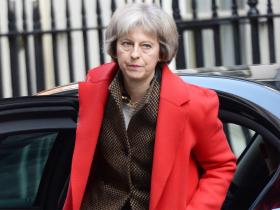
The government may have mistakenly deported more than 7,000 foreign students after falsely accusing them of cheating in English language tests.
Most of the students were not allowed to appeal the Home Office decision; nor were theyt able to obtain evidence against them, or given the opportunity to prove the proficiency in English
Some were detained by immigration officials, lost their jobs, and were left homeless as a result, despite being in the UK legally, the Financial Times reported.

The students’ treatment has been blamed on the “hostile environment” policy introduced by Theresa May during her time as home secretary.
The approach, which aims to push illegal immigrants to leave Britain by making their lives difficult, led to the Windrush scandal that forced Ms May’s successor Amber Rudd to resign.
The foreign students were targeted by the Home Office after an investigation by the BBC’s Panorama in 2014 exposed systematic cheating at some colleges where candidates sat the Test of English for International Communication (TOEIC). The test is one of several that overseas students can sit to prove their English language proficiency, a visa requirement.
After the Panorama broadcast, the government asked the US-based company which runs the test to analyse sound files to investigate whether studies had been enlisting proxies to sit the tests for them.
The firm, English Testing Services, identified 33,725 “invalid” tests taken by students it was confident confident had cheated. The students’ visas were revoked and they were told to leave the country.
Another 22,694 test results were classed as “questionable”, meaning the students who sat them were invited for an interview before any action was taken against them.
By the end of 2016, the Home Office had revoked the visas of nearly 36,000 students who took the test.
However, when ETS’s automated voice analysis was checked against human analysis, its computer programme was found to be wrong in 20 per cent of cases, meaning that more than 7,000 students were likely to have been wrongly accused of cheating.
An immigration appeals tribunal in 2016 found the evidence used by the Home Office to deport the students had “multiple frailties and shortcomings”.
Judges said the government was “entirely reliant” on information from ETS, which did not present any witnesses at the hearing and was subject to a “litany of criticism” by an independent voice recognition expert.
Immigration barrister Patrick Lewis, who represented several students in successfully appealing their deportation, told the Financial Times: “The highly questionable quality of the evidence upon which these accusations have been based and the lack of any effective judicial oversight have given rise to some of the greatest injustices that I have encountered in over 20 years of practice.”
A Home Office spokeswoman told The Independent: "In February 2014, investigations into the abuse of English language testing revealed systemic cheating, which was indicative of large scale organised fraud. The government took immediate robust action on this, which has been measured and proportionate, and so far 21 people have received criminal convictions for their role in this deception.
"There is no limit on the number of genuine international students who can come to study in the UK, nor is there any intention to impose one.”

No comments:
Post a Comment